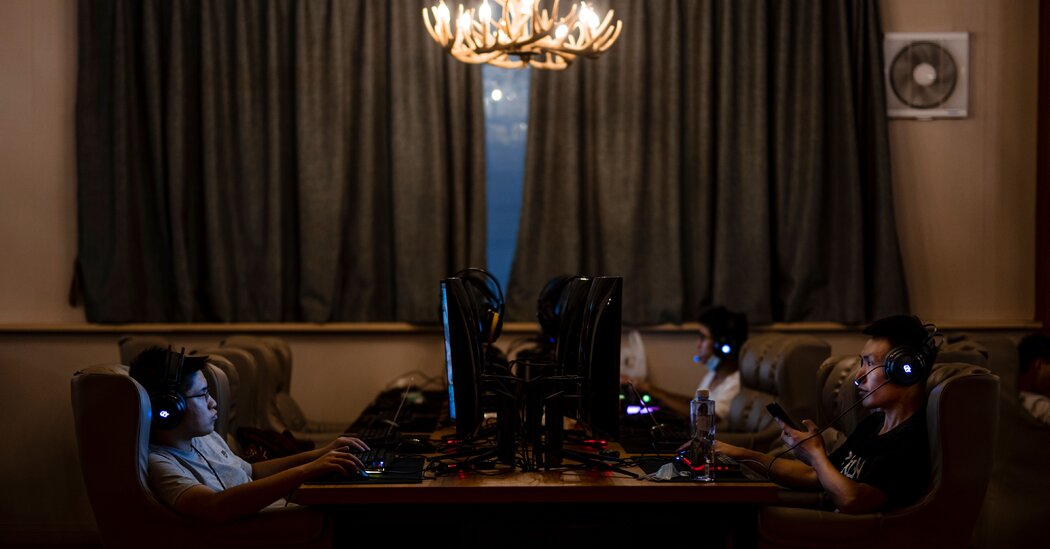The Latest
Chinese regulators announced new restrictions Friday on online video games, which they said were aimed at tightening the management of the industry and protecting the country’s minors.
The proposed rules, which are subject to public comment before being made final, are the latest in several rounds of curbs on the industry over the last few years. The plan would call for users to have spending limits on the game platforms and would prohibit minors from tipping videogame live streamers.
The draft rules, issued by the National Press and Publication Administration, would also try to lessen the incentives for players to keep coming back by banning game companies from offering rewards for daily logins. Additionally, the rules would require computer servers and other equipment used by game companies to be located within China, and would stipulate that the content of games must not contain state secrets or endanger national security.
The Context: The campaign started by cracking down on time spent gaming.
As early as 2019, the Chinese authorities took aim at what they deemed was a problem of online game addiction among minors, setting daily time limits on gamers under 18. Those restrictions have since been tightened. Four months ago, regulators proposed rules that would require a “minor mode” on mobile devices to cap screen time and restrict the content for schoolchildren.
The government has waged a wider war on the tech industry in the last few years, seeking to rein in e-commerce, financial technology and ride-hailing businesses that it decided had become too powerful. As a result, companies that were once as large as their U.S. counterparts collectively lost trillions of dollars in market value.
Regulators stymied online gaming by delaying for eight months the issuance of licenses publishers need to bring out new games, finally ending the suspension in April 2022.
Why It Matters: China dominates the industry.
China’s online game industry tops the world in both the number of users, 650 million last year, as well as revenue, $45 billion, according to research by Goldman Sachs, an investment bank.
The announcement of the proposed rules sent the share prices of Chinese videogame companies tumbling: Tencent fell about 12 percent, and Netease plunged 25 percent.
On Weibo, China’s social media platform, one commenter criticized the proposal as counterproductive when the Chinese economy is struggling: “Now you know who is suppressing the Chinese economy, right?”
The National Press and Publication Administration will accept public and industry feedback on the rules through Jan. 22. The proposal could then be amended before it takes effect.

